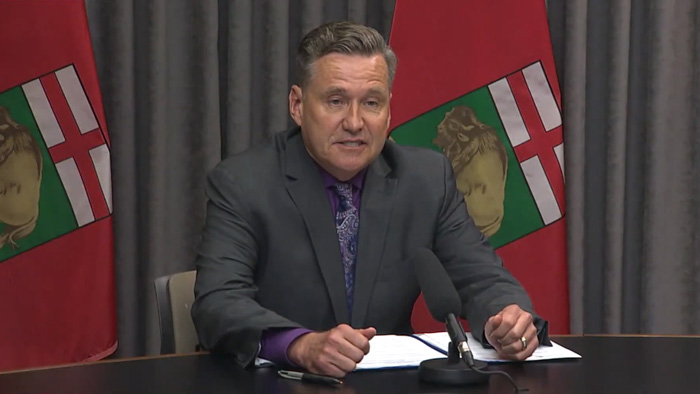Manitoba Transportation and Infrastructure’s Hydrologic Forecast Centre has released the 2022 Manitoba Basins Fall Conditions Report, which indicates soil moisture levels at the time of freeze-up are near normal or below normal in most Manitoba basins.
“Hydrologic conditions at the time of freeze-up combined with weather this winter and upcoming spring will be the main factors that affect the extent of low- or high-water events,” said Transportation and Infrastructure Minister Doyle Piwniuk. “At this time conditions in most areas appear somewhat favourable. The long-term spring flood risk will be dependent on future weather conditions including the amount of precipitation received over winter and into spring, as well as the rate of snowmelt.”
Most Manitoba basins received record to near record precipitation this past winter and spring creating significant flooding. Hydrologic conditions improved over summer and fall with normal to below-normal precipitation. In October and November, southern, western and eastern Manitoba basins received below-normal precipitation, while central and northern Manitoba basins received normal to well-above-normal precipitation.
Due to precipitation levels in summer and fall, soil moisture at the time of freeze-up is near normal to below normal for most Manitoba basins, with some areas in central Manitoba and the Interlake region having above-normal soil moisture.
Factors that affect the extent of spring run-off include water levels on rivers and lakes prior to freeze-up that indicate how much capacity exists to receive spring run-off. Lake Manitoba and Lake Winnipeg are within operating ranges. Lake Winnipegosis, Lake St. Martin are near normal to slightly above normal. Dauphin Lake is well above normal for this time of year. Inflow into Lake of the Prairies (Shellmouth Reservoir) is tracking near-normal conditions.
Winter and spring precipitation also affects spring run-off potential. Environment and Climate Change Canada’s long-term precipitation forecast for this winter and spring has predicted above-normal precipitation for northern Manitoba and near-normal precipitation for southern Manitoba.
The Hydrologic Forecast Centre continues to work collaboratively with Environment and Climate Change Canada, the National Weather Service and flood forecasters in neighbouring jurisdictions to monitor watershed conditions and winter precipitation patterns. Manitoba’s Emergency Measures Organization continues proactive preparations for emergency response efforts should the spring run-off result in flooding.
The minister noted that further basin condition updates, as well as spring flood outlooks, will be released as necessary.




